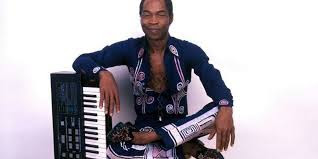GOVERNMENT
SHOULD APPOINT ART PRACTITIONERS TO RUN THE NATIONAL THEATRE AND SEE IF THEY WON’T
MAKE MONEY
E.P : Can you introduce yourself ?
Ans: I am
Edith Amatotsero
E.P. Tell us some production that you have taken
part in?
Ans: I was in Memorial Hospital on NTA , Cradle, Equally Zeb Ejiro
Ripples, Opa Williams “ Just the two of us” ( where I played grandma to
Swanta). Jimmy Jay on mnet where I played Iya Francis.
E.P. The passion for
acting and your long association with the profession, what is your impression
of it these days?
Ans: The way we joined then from secondary school due to the
passion for it sometimes not because of the money. In does days, you work and
don’t get paid sometimes but because of the passion for it we still continue
with it, but these days, people just want the glamour and money in it , no
passion at all. I was at an mnet audition this morning, the audition was to
start at 8:am people were there for as early as 4:00am, some have to sleep over
there , even people came from outside lagos. Some just want to show themselves, but for some of
us , the passion for acting is there, we are still there, we are not
discouraged. The money is there, some are making it, some are not making
it. We are still there even on stage. In
those days, they were paying nothing but nowadays, people have become
millionaire. The people that make it just get there by chance. The stage
production is strenuous but the movie production are less cumbersome but movie
is fast money.
E.P : In
stage production there is a revival now by people like you, what is your
comment on this?
Ans: Stage production is interesting like I use to say, If am
forgotten on stage am dead because stage is it. Am happy it is been revived in
places like terra kulture muson centre and here we have D park theatre at the
freedom park and in other places, we also have the Guerrilla theatre where you
see people performing on the street.
E.P: The government attitude
towards the art industry, what is your reaction to it?
Ans: It is just that they don’t know if they know that they
don’t have to dig the ground like the crude oil, and refine it. It is just
there for us to have. It is equally sad that there would bring somebody that
don’t have anything, to do with the arts into management of a sensitive and art
oriented position like the national art theatre that is why they want to sell
the national theatre because they don’t know it’s importance. When you go to stage a play their, after
paying, they required money or fees for space , they will expect you to bribe
the engineer, buy your own fuel to power the light, no concession at all, we
are the one bringing the end product and once it is getting near their agreed
time, they will off the light. What the government should do is to appoint real
practitioners to manage the national theatre and see if they won’t make money,
how can they use an art theatre to host an A.G.M meetings or religious programs.
Look at the superb administration of terra kulture , the whole place is fully
booked for the whole year due to purposeful and art friendly management by Mrs.
Bolanle Austen Peters and her team likewise the muson centre.
E.P.: How did you get involved in Opa Williams Production of
“Just the two of us”?
Ans: I was invited by Opa Williams himself to take part in
the program.
E.P.: (Cut in) How is
Swanta?
Ans: She is at the University of Lagos, she is in her final
year.
E.P: What is your reaction to the Present crops of Artist in
the Industry?
Ans: Some of them cannot interpret the script given them
properly, we watch some films, the interpretation is not good and it is just
blank. You know we have some people looking for glamorous girls, it is that
glamour they want to show but they have forgotten the script.
E.P.: How lucrative is the profession?
Ans: It is very lucrative, we have a wide field, if it is not
lucrative, my son won’t be there. I have a son who studied architecture but he
is strong in theatre so if it is not lucrative, I won’t encourage him.
E.P: Thank you very much.
Ans: It’s my pleasure.




















